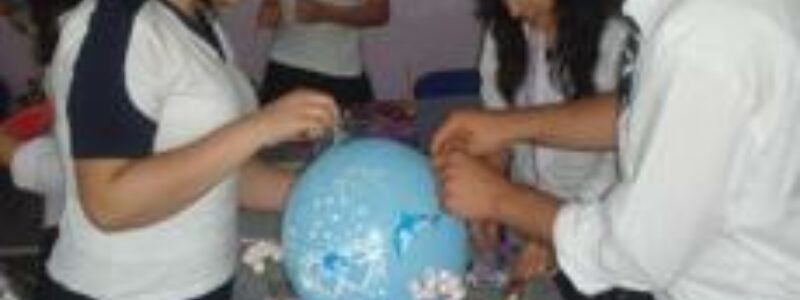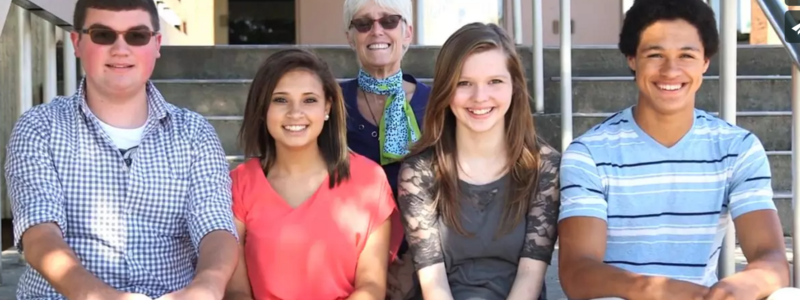One Day in the Life
This plan was designed for students to particapate in the One Day in the Life Project
One Day in the Life
Teacher goals:
- Integrate global awareness throughout my curriculum.
- Help students develop 21st century skills.
- Promote global communication through online forums
Student goals:
State, local, and/or national curriculum standards that this project addresses
- 4.03 Share written and oral products in a variety of ways (e.g., author's chair, book making, publications, discussions, presentations).
- 4.09 Produce work that follows the conventions of particular genres (e.g., personal narrative, short report, friendly letter, directions and instructions).
- 4.10 Explore technology as a tool to create a written product.
Social Studies:
- 2.01 Distinguish and compare economic and social roles of children and adults in the local community to selected communities around the world.
- 2.02 Analyze similarities and differences among families in different times and in different places.
- 2.03 Describe similarities and differences among communities in different times and in different places.
- 4.02 Use appropriate source maps to locate communities.
- 4.03 Use geographic terminology to describe and explain variations in the physical environment as communities.
- 6.03 Identify the impact of technological change on communities around the world.
- 7.01 Identify the deeds of local and global leaders.
Math:
- 4.01 Collect, organize, analyze, and display data (including circle graphs and tables) to solve problems.
- Reading 7 Integrate and evaluate content presented in diverse media and formats, including visually and quantitatively, as well as in words.
- Writing 3 Write narratives to develop real or imagined experiences or events using effective technique, well-chosen details, and well-structured event sequences.
- Writing 6 Use technology, including the Internet, to produce and publish writing and to interact and collaborate with others.
- Writing 7 Conduct short as well as more sustained research projects based on focused questions, demonstrating understanding of the subject under investigation.
- Writing 8 Gather relevant information from multiple print and digital sources, assess the credibility and accuracy of each source, and integrate the information while avoiding plagiarism.
- Speaking and Listening 1 Prepare for and participate effectively in a range of conversations and collaborations with diverse partners, building on others’ ideas and expressing their own clearly and persuasively.
- Speaking and Listening 2 Integrate and evaluate information presented in diverse media and formats, including visually, quantitatively, and orally.
- Speaking and Listening 5 Make strategic use of digital media and visual displays of data to express information and enhance understanding of presentations.
- Math Grade 3 Measurement and Data Represent and interpret data.
Timetable
- September: Introduction to the project using iEARN videos, blogs, and forums. As a class, we will create an introduction to our city, state, school, and classroom using the project's blog to post our information. We will discuss as a class what technology to use when introducing ourselves and how we want to do it.
- October/November: Students will create their first photo diary. They will share the 3 meals that they ate on a specific day. They will document their meals using either photos or pictures along with a description of the food applying their knowledge of adding sensory details in their writing. In November, a global forum will take place for this project in which students will create a log of a day in their life. They will all record what they do on the same day and compare their lives. They will publish a step by step documentation of that day. In the forum, they can ask and answer questions.
- December/January/February: Students will research heroes in their community and create a short essay describing why they are heroes and what they have contributed to society. Students will have this modeled after we talk about Dr. Martin Luther King, Jr. in early January. (If time allows/ students finish, students may also include information about their own families in a forum or blog and compare and contrast how they differ from other families. They may share a personal narrative written about their family or simply share a day in the life with their family.)
- March: Students will share their thoughts on standardized testing on the forum. They will explain what "EOGs" (End of Grade) tests are and give their opinion on them. Do you agree with them? Should they determine whether you go to the next grade? Are they fair? Students can then ask for other opinions from students around the world. Do they have the same type of thing? How do they move to the next level at school? Together, they could come up with another way to assess students without using standardized testing.
- April: Diary Photo Log (Spring): Students can take the time to do another log on a day in their life, but this time in the spring. They can use their knowledge from math to create circle graphs showing how much time they spend playing, sleeping, going to school, eating, and doing homework during a day. They could ask other students to share a similar graph so they could compare data.
- May: Create a photo story to share with another classroom(s) about our year in 3rd grade. I would love to take this time to Skype with a classroom we have communicating with if that is possible. It would be a great end to our year and motivate students to work hard throughout the year.
- June: This is the last month of school and a great time to share what they will miss most about 3rd grade and share goals about next year. They could discuss this on the forum or blog and ask other students what their goals are.
Introduction
Productivity of work
Assessment of student work
How will the appropriateness of student work be evaluated?
I will use a KWL chart to assess their knowledge on each topic. This will help me to guide my instruction and create small groups accordingly.
- in the introduction stage of the project KWL chart
- in the implementation of the project I will assess writing pieces using a rubric and their "Global Awareness Notebook" to assess communication online. I will also use small group and whole group discussions to informally assess what they are learning and discussing with their online partners.
- in conclusion of the project This is an ongoing project.
Conclusion of activity
When does your participation in the project end?
This is an ongoing project that will include different topics each month, but we will end online communication in June.
Skills students will use/learn
- Computer skills: Blogs, Wikis, forums, uploading videos/photos/ documents
- Research skills: Internet, Library, experts/community heroes/leaders?
- English language skills: Writing, grammar, punctuation, content, sensory details,
- Online communication- asking questions, reading and responding to posts






